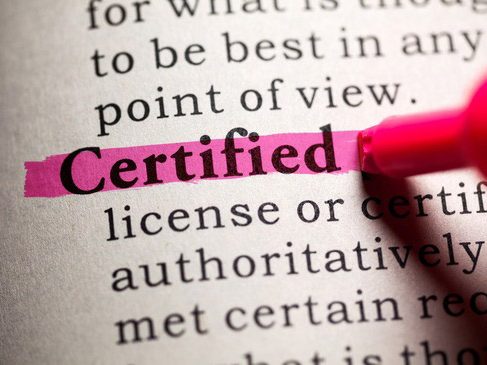Document Certification for Use in Other Countries

Whether you are preparing to relocate to a foreign country, or your company is planning to do business abroad, you may be asked to present “certified documents”. Document certification is one of many terms you may hear that refers to the document apostille process. Other terms, such as “Authentication”, “Legalization”, “Attestation”, and “Ratification”, are terms used around the world to refer to this same process. In this article we will dive deeper into the Canadian Document Certification process.
What are Certified Documents?
There isn’t really a universal definition of “certified” or “certified documents”. Most commonly, certified documents are documents that have been approved by an accepted authority, such as a Notary Public. However, you may also hear references to documents that were “certified” by the provincial registrar, a clerk of the court, the Ministry of Education, a Chamber of Commerce, or a Board of Trade. Document certification is typically the act of an approved official adding their signature and seal to the document while making a statement of execution.
What is a Certified True Copy?
A certified true copy of a document is made by a Canadian Notary Public. The Notary Public will compare the original document to a photocopy of the document. The Notary Public will then mark the photocopy as a “Certified True Copy” of the original and will include their signature and embossed seal.
You should be careful to confirm with the officials in the destination country that they will accept a certified true copy of the document and they do not require the original. Additionally, there are some apostille offices and diplomatic missions that do not accept copies of documents, even if certified.
If my documents are Certified, do they need Document Apostille?
If you intend to use your certified documents in a foreign country they most likely will need an apostille. The apostille is done through the appropriate Canadian government authority. The apostille authority verifies the signature on the document and adds their certificate of apostille to your document.
There are many situations where your Canadian documents will need to go through the document apostille process. This requirement is set out by the government of the country where you will be submitting your documents. We strongly recommend you confirm the requirements before starting the document apostille process, as it can be time consuming and costly. However, as a general rule we would say that the most commonly requested documents, such as vital statistics documents, criminal record checks, educational degrees, powers of attorney, and commercial documents, all typically require apostille.
What is Document Apostille?
As referenced earlier, document apostille is a process that allows documents from Canada to be recognized outside of Canada. If your destination country is not a member of the Hague Apostille Convention, your document will need an additional step of document legalization. For more information about this process, feel free to dive deeper into our document legalization services.
How can we assist with Document Certification?
We can certainly assist with document certification and all aspects of the apostille or legalization process. Once we have a clear idea of what documents you have and where they will be used, we can provide guidance and explain how we can assist. Please don’t hesitate to contact us online or call us toll free at 1-888-433-1011. Our friendly document experts are happy to help!